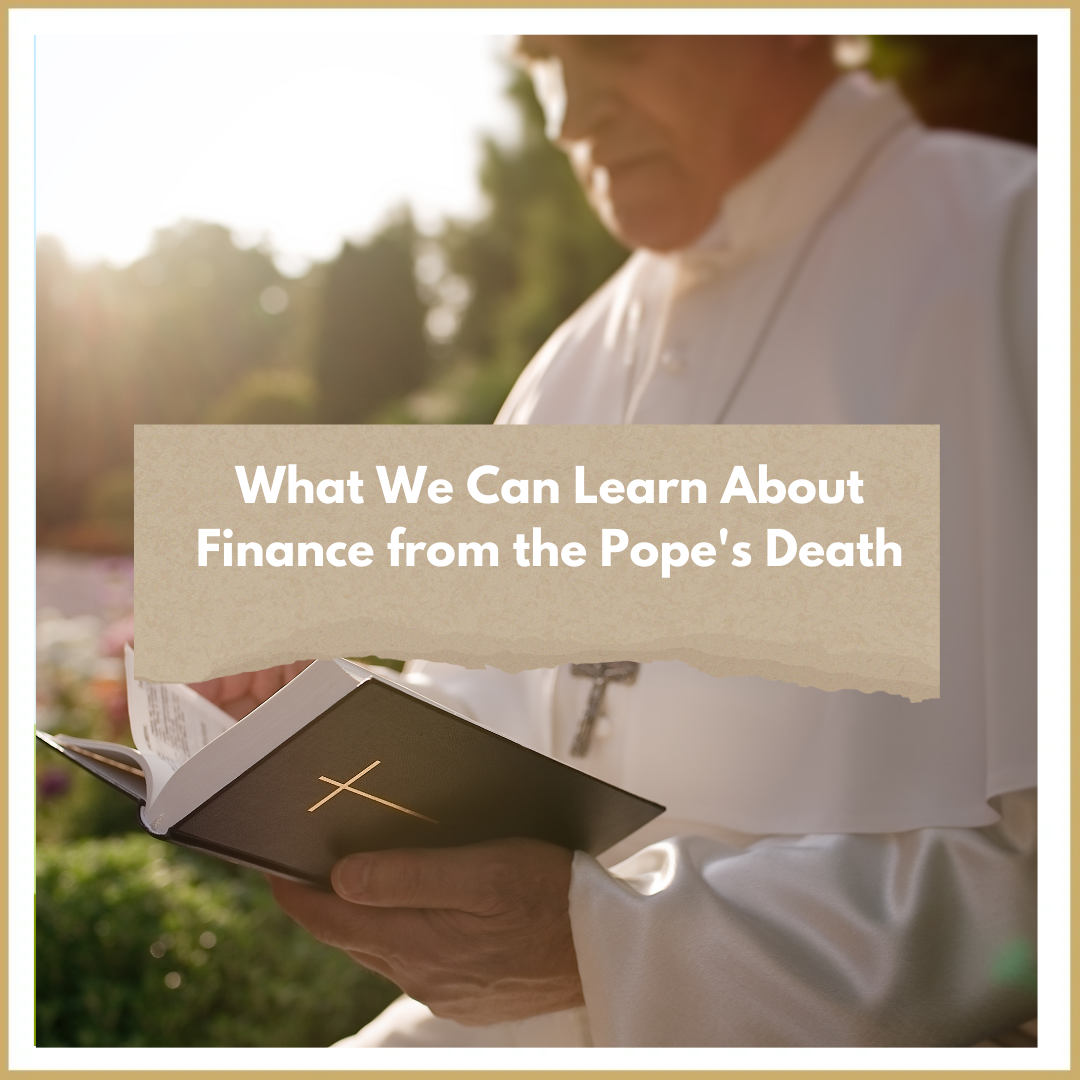The death of Pope Francis might not seem like something that would spark a conversation about personal finance—but it should. His passing highlights some core principles that matter whether you’re running a global institution or managing your own budget. It’s less about religion, more about how leadership, planning, and financial decisions ripple beyond any one person’s lifetime.
Francis pushed for major financial reforms within the Vatican. He inherited an institution plagued by opaque bookkeeping, questionable real estate deals, and a reputation for secrecy—issues that came to light in several high-profile scandals (ABC News). By pushing for transparency and oversight, Francis wasn’t just trying to clean up—it was about preserving the long-term integrity of an institution that spans centuries. It’s a clear reminder: trust and transparency are the foundation of any sustainable financial system.
That idea translates directly to personal finance. You don’t need Vatican-sized assets to feel the impact of bad advice or unclear financial arrangements. A strong financial plan isn’t just about returns—it depends on doing your homework and choosing reliable institutions and professionals. In Australia, ASIC’s Moneysmart guide is a solid place to start when looking for a qualified financial adviser and knowing what questions to ask.
Francis also modeled a different relationship with wealth. He lived simply, never owned property, and reportedly left behind very little personal estate. That simplicity isn’t about sacrifice—it’s about clarity. It challenges the idea that financial success alone defines a successful life. Wealth, on its own, isn’t enough. A meaningful life includes health, strong relationships, and purpose. The right financial choices should support those things, not replace them.

It also comes down to planning. The Vatican had to think about what would happen next—because leadership transitions affect finances too. In our lives, transitions show up as job changes, illness, family shifts. None of those are easy to predict, but they’re easier to handle if you’ve thought ahead. A basic financial plan—emergency fund, will, insurance, goals—puts you in a stronger position when life changes.
And what’s next can come without warning. The Pope’s death marked a major transition for the Vatican—spiritually, politically, and financially. Leadership changes impact everything from donations to tourism to internal administration. For individuals, it’s not so different. Life changes—career moves, illness, family events—can have just as much financial weight. People who do best through transitions aren’t always the ones with the most money. They’re usually the ones with a plan.

Pope Francis may not have written about finance, but his life offers a few solid takeaways: Trust matters. Simplicity can be powerful. And wealth, if it’s not helping you live better—healthier, more connected, more intentional—probably needs a second look.
Any discussion in this article does not take into account your objectives, financial situation or needs. Before acting on it, you should consider whether it’s appropriate to you, in light of your objectives, financial situation or needs.

